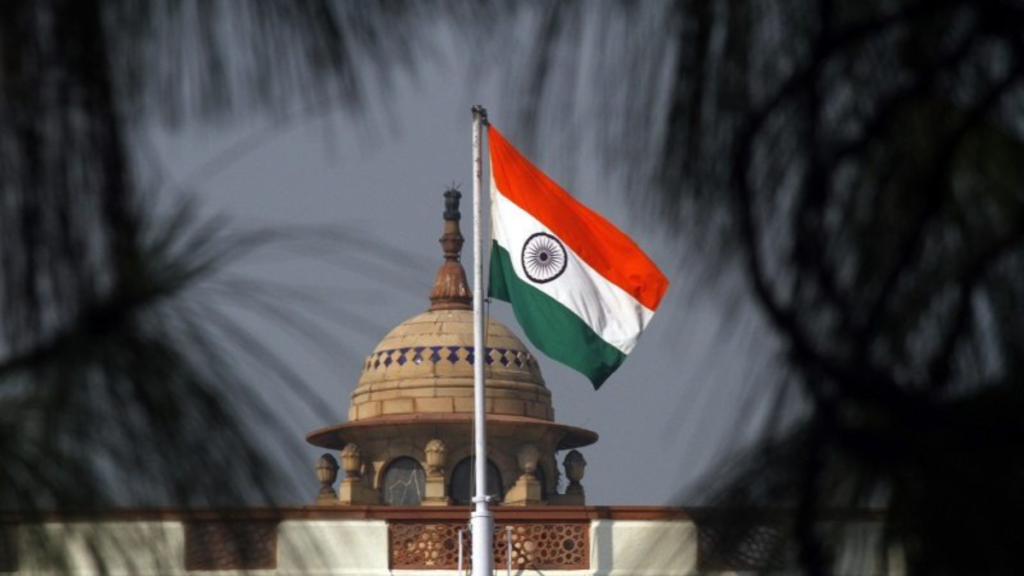
In India, the act of desecration and flag burning has been a subject of legal and societal scrutiny, invoking debates around the delicate balance between freedom of expression and the sanctity of national symbols. While the Constitution of India guarantees fundamental rights, including freedom of speech and expression, certain legal considerations surround actions that may be perceived as disrespectful towards the national flag. This article aims to explore the legal landscape of flag desecration in India, examining landmark cases, legislative responses, and the ongoing debate on how to reconcile the preservation of national symbols with the protection of individual rights.
The Constitution of India, adopted in 1950, enshrines fundamental rights as the cornerstone of Indian democracy. Article 19(1)(a) guarantees the right to freedom of speech and expression, a right fundamental to the functioning of a democratic society. However, this right is not absolute and is subject to reasonable restrictions outlined in Article 19(2), which includes issues related to sovereignty and integrity of India.
Landmark Cases:
Naveen Jindal v. Union of India (2004):
In the case of Naveen Jindal v. Union of India, the Supreme Court of India addressed the issue of the Prevention of Insults to National Honour Act, 1971. The petitioner, Naveen Jindal, challenged the constitutional validity of the Act, which criminalized disrespect to the national flag and emblem. The Court upheld the Act, emphasizing the importance of preserving the dignity of national symbols to foster a sense of national pride and unity.
Mahendra Singh Dhoni v. Yerraguntla Shyamsundar (2017):
A different perspective emerged in Mahendra Singh Dhoni v. Yerraguntla Shyamsundar, where Indian cricketer Mahendra Singh Dhoni faced allegations of disrespecting the national flag. Dhoni was photographed sporting the insignia of an army unit on his wicketkeeping gloves during a cricket match. The Court held that wearing the insignia did not amount to disrespect and emphasized the need for a balanced approach in interpreting laws related to national symbols.
In response to concerns surrounding the desecration of the national flag, the Indian government enacted the Prevention of Insults to National Honour Act, 1971. The Act criminalizes acts that intentionally insult or cause disruption to the national flag and emblem. Violation of the Act may result in penalties, including imprisonment and fines. However, the Act has faced criticism for its potential to impinge on freedom of expression, sparking debates on the need for a more nuanced approach.
The Prevention of Insults to National Honour Act, 1971, raises the question of whether restrictions on flag desecration are justified in the interest of public order. While the Act aims to protect the integrity of national symbols, critics argue that it may be used to stifle dissent and legitimate forms of expression. Striking a balance between safeguarding public order and upholding individual freedoms remains a challenge for the Indian legal system.
International Perspectives:
India is not alone in grappling with the legal and societal implications of flag desecration. Various countries worldwide have enacted laws to protect their national symbols, with penalties ranging from fines to imprisonment. The approach to balancing free expression and symbolic protection varies, reflecting different cultural and legal traditions. India’s legal framework is situated within this global context, raising questions about the universality of principles governing the treatment of national symbols.
Cultural Sensitivities and National Identity:
The debate over flag desecration in India is not solely a legal matter; it is deeply intertwined with cultural sensitivities and national identity. The national flag is a symbol of pride and unity, representing the diversity of the country. Acts perceived as disrespectful towards the flag may evoke strong emotional reactions from the public. Balancing the protection of national symbols with the preservation of diverse expressions and opinions becomes crucial in navigating this complex terrain.
The Role of Judicial Interpretation:
Judicial interpretation plays a pivotal role in shaping the legal landscape surrounding flag desecration in India. Courts must carefully balance the right to freedom of expression with the need to protect national symbols. The judiciary’s approach to interpreting laws and constitutional provisions will influence how the legal system adapts to the evolving dynamics of societal values and individual rights.
Conclusion:
In conclusion, the legal analysis of flag desecration in India requires a nuanced understanding of the delicate balance between freedom of expression and the protection of national symbols. The Constitution of India, while guaranteeing fundamental rights, also recognizes the importance of reasonable restrictions to maintain public order and safeguard national integrity. The Prevention of Insults to National Honour Act, 1971, represents a legislative response to concerns about flag desecration, but its implementation requires careful consideration of individual rights and cultural sensitivities.
As India continues to evolve, so too will the legal discourse surrounding flag desecration. Striking the right balance between preserving national symbols and upholding individual liberties will be an ongoing challenge, and the role of the judiciary in interpreting and applying the law will be crucial in navigating this complex terrain. The dynamic interplay between legal principles, cultural values, and societal expectations will shape the future trajectory of the debate over flag desecration in the Indian context.